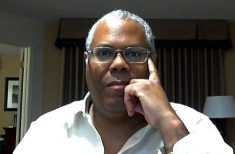Some Leaders Worry About Becoming Obsolete
Posted by Mitch Mitchell on May 10, 2017
I don't know how many people remember the original Star Trek series. For those who don't, there was an episode where a guest character had created a super computer with the intention that it could run an entire starship on its own, such that it wouldn't need a crew or a captain. As the computer was given the reins to the ship, a commodore from another starship called Captain James T. Kirk "Captain Dunsel", a slang term used in the Federation Standard language to describe an item that was completely useless in Starfleet service.
 |
I sometimes get the feeling that a lot of people in leadership positions are worried about being considered "dunsel", even if they don't know the term. My reasoning is that many of them not only don't understand the concept of leading others, but they don't understand the benefit of working hard to train others to be leaders in their own right.
Although I've never succumbed to the feeling, I know what some of these other leaders might be thinking. All we need to do is look at sports to see that no matter how great someone is, there's often someone greater and younger right around the corner waiting to take the reins and soar to greater heights. Some people might think they'd be out of their mind to train someone to replace them when they don't want to be replaced.
There are many article that address company founders whose brilliance at creating a product or service at some point end up having to give up their overall leadership position and hire a CEO to lead the company to greater heights. It's always a tough transition because letting go of something they started is emotionally tough, but even Bill Gates gave up the CEO position when he realized his strength was elsewhere, not in continually growing his company.
With that said, I've found that savvy leaders who are confident in their abilities on a lower level not only rarely lose their position, but gain ultimate loyalty from their employees because they know that they're going to be given a chance to learn how to be a leader, whether it's at the organization they're already working for or elsewhere.
The most pride I ever felt was seeing someone who worked for me and honed their skills, while showing that they could work independently and assume leadership when necessary, assume another job elsewhere by moving into a leadership position. I only wish I worked in a place where someone had the opportunity to become a leader I had an opportunity to work with; I would have been immensely proud of that feat.
 |
The main thing leaders who don't train others to be independent thinkers and leaders miss is that the better people are trained and the most confidence they have in themselves gives the leader more time to pursue other actions and avenues that benefit the organization as well as the department. It's the kind of shortsightedness that inhibits company growth, as well as the growth of the leader.
Since it's my blog I'll talk about my own experience, from my health care background.
Without working to make sure the employees who worked for me had all the tools they needed to succeed, and without giving those employees who wanted more responsibility the opportunity to prove themselves, I'd have never had the time to do and learn many of the things I did that helped me become more rounded.
My first independent leadership position was as a regional director for a physician billing company. I already understood billing, which is what got me the position, but by working with staff in 5 different locations I also had the opportunity to learn procedure coding for multiple specialties.
Once I left the job and took another at a hospital, I got to apply what I learned to help my new hospital increase its revenue, which in turn increased cash. When I went to another hospital years later, because I set out to get my current and new employees up to standard in billing proficiency. Then I worked on making them more than that, because I wanted them to be strong and independent so I could do other things.
Because my employees didn't need me all the hours of the day, I had time to take on corporate compliance responsibilities. I got to work with a group on leadership training processes. I also got to have a lot of time to think about ways to keep improving the departments directly reporting to me, something many leaders don't get to do, but should.
Without my own employees being able to think for themselves without me having to be there to do everything for them, I'd have never learned, nor had the opportunity, how to do everything I got to do. It also wouldn't have given some of those employees leadership skills they got to take with them when our department was shut down years later. I also wouldn't have been able to go into consulting and had the diverse types of contracts I was able to obtain.
Good leaders never become obsolete. Even if they get downsized, their skills will get them another position elsewhere. Never be afraid to help make others the best they can be, even if they supersede you later on. Trust me, it's a better way to go than "dunseling" oneself. 😉


Great article, Mitch.
I think there also is a major difference between true leaders and managers. Sometimes I feel like those terms get messed up, just because both have the job of “managing” people.
It needs much more to be a true leader, and those will for sure never be replaceable!
That’s why I go out of my way to make a distinction between leaders and managers/directors etc. My hope is to have more managers wanting to learn how to be good leaders, but it’ll never happen if they’re more worried about losing their jobs than helping others.